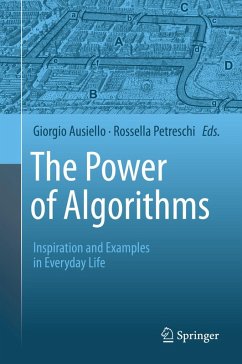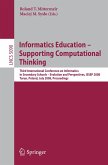The first chapter is an overview of the related history, demonstrating the long development of ideas such as recursion and more recent formalizations such as computability. The second chapter shows how the design of algorithms requires appropriate techniques and sophisticated organization of data. In the subsequent chapters the contributing authors present examples from diverse areas - such as routing and networking problems, Web search, information security, auctions and games, complexity and randomness, and the life sciences - that show how algorithmic thinking offers practical solutions and also deepens domain knowledge.
The contributing authors are top-class researchers with considerable academic and industrial experience; they are also excellent educators and communicators and they draw on this experience with enthusiasm and humor. This book is an excellent introduction to an intriguing domain and it will be enjoyed by undergraduate and postgraduate students in computer science, engineering, and mathematics, and more broadly by all those engaged with algorithmic thinking.
Dieser Download kann aus rechtlichen Gründen nur mit Rechnungsadresse in A, B, BG, CY, CZ, D, DK, EW, E, FIN, F, GR, HR, H, IRL, I, LT, L, LR, M, NL, PL, P, R, S, SLO, SK ausgeliefert werden.
"The book starts with the ancient and medieval history of algorithms, and finishes with a dialog on randomness in problem solving. For each topic, the key problems are presented and the accepted algorithms are described. ... this book belongs in all college libraries and CS faculty may like a copy beside their classic algorithms texts." (Richard Botting, Computing Reviews, April, 2014)









